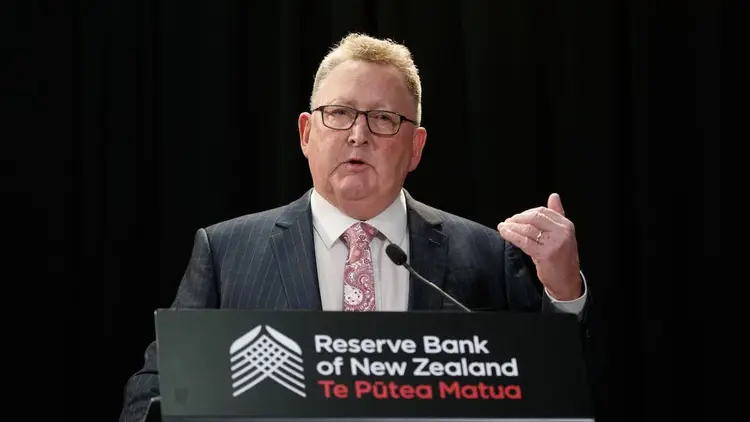Reserve Bank keeps OCR on hold but 'dovish' tone has markets ...

The RBNZ won’t release new forecasts until its Monetary Policy Statement in August.
The Reserve Bank (RBNZ) toughened its stance in May’s Monetary Policy Statement, pushing its projections for the first cut-out as far as August or September next year.
But as the economic downturn deepens, there is a growing consensus that the RBNZ will need to pivot from its current stance later this year.
Today’s announcement may represent the start of this process.
“The committee’s messaging gives us greater confidence that the Bank will commence its easing cycle in November,” said Abhijit Surya, Australia and New Zealand economist at Capital Economics.
“There were a few nuggets in today’s policy announcement that show that the Bank is now one step closer to cutting rates,” he said.
“First, the Bank noted that restrictive monetary policy has ‘significantly reduced consumer price inflation’, whereas in May it noted that restrictive monetary policy has ‘reduced capacity pressures in the New Zealand economy and lowered consumer price inflation’.”
“Second, the Bank is no longer saying that interest rates need to remain restrictive for a ‘sustained period’. Instead, the Bank’s new line is that policy will need to remain restrictive but that ‘the extent of this restraint will be tempered over time consistent with the expected decline in inflation pressures’.”
“Third, the Bank stated that ‘there is now more evidence of excess productive capacity emerging, with measures of capacity utilisation and difficulty finding labour easing materially’. That’s a marked contrast to its May statement when it assessed that aggregate demand was broadly in line with aggregate supply.”
The committee discussed the balance of risks to the inflation outlook.
“Members noted a risk that domestically driven inflation could be more persistent in the near term. However, there is also a risk that price-setting behaviour and inflation expectations could normalise more rapidly as headline inflation declines.”
Financial stress was expected to keep rising, the committee said.
“Non-performing bank loans and corporate insolvencies have increased from low levels in line with declining economic activity. These metrics are slow-moving, and hence measures of financial stress are expected to keep rising.”
The Government’s recent tax changes were also discussed.
“Government expenditure is forecast to decline as a share of the economy in coming years,” the committee said. “Members noted timing differences between the impact of lower government spending and tax policy changes. Lower government spending has already been contributing to weaker demand and will continue to do so. However, the positive impact of tax cuts on private spending is yet to occur and is more uncertain.”
The committee noted that other central banks had either begun cutting rates or were expected to soon.
“Global consumer price inflation has been trending down. This has given some central banks the confidence to either start or to signal, a gradual reduction in policy interest rates,” the committee said.
“Nevertheless, monetary policy remains at restrictive levels in most advanced economies, and the recent stalling in global disinflation has tempered market expectations of the speed of official rate reductions.”
The committee noted that recent higher frequency indicators suggest that near-term growth in business activity has weakened. “A range of business and consumer surveys, and higher frequency spending and credit data, all point to declining activity.”
The committee discussed the risk that “this may indicate that tight monetary policy is feeding through to domestic demand more strongly than expected”.
Last week ASB economists shifted their forecast from February to a November cut, joining Kiwibank and the markets.
Liam Dann is business editor-at-large for the New Zealand Herald. He is a senior writer and columnist. He also presents and produces videos and podcasts and is the author of the best-selling book BBQ Economics. Liam joined the Herald in 2003.









































